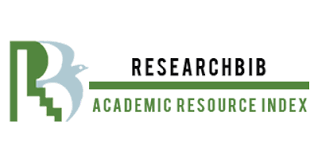EMPROWERING LANGUAGE LEARNNERS:THE ROLE OF TECHNOLOGY IN TESOL EDUCATION
Keywords:
TESOL,education,technology, language skills.Abstract
This article reflects on the role of technology in TESOL education.
References
Hava K. Exploring the role of digital storytelling in student motivation and satisfaction in EFL education. Comput Assist Lang Learn. 2021;34(7):958–78.
Cifuentes-Faura J, Obor DO, To L, Al-Naabi I. Cross-cultural impacts of COVID-19 on Higher Education Learning and Teaching Practices in Spain, Oman, Nigeria and Cambodia: a cross-cultural study. J Univ Teach Learn Pract. 2021;18(5):8.
Derakhshan A, Coombe C, Zhaleh K, Tabatabaeian M. Examining the Roles of Continuing Professional Development needs and views of Research in English Language Teachers’ success. Tesl-Ej. 2020;24(3):n3.
Faura-Martínez U, Lafuente-Lechuga M, Cifuentes-Faura J. Sustainability of the spanish university system during the pandemic caused by COVID-19. Educational Rev. 2022;74(3):645–63.
Ömer Ö, AKÇAYOĞLU Dİ. Examining the roles of self-efficacy beliefs, self-regulated learning and foreign language anxiety in the academic achievement of tertiary EFL learners. Participatory Educational Research. 2021;8(2):357–72.
Fatemi Jahromi SA, Salimi F. Exploring the human element of computer-assisted language learning: an iranian context. Comput Assist Lang Learn. 2013;26(2):158–76.
Huynh T-N, Nguyen UNT. In-Service Language Teachers’ Attitudes towards Technology Use and the development of their perceived CALL competencies. Taiwan J TESOL. 2021;18(2):29–62.
Reina R, Santana A, Montesdeoca R, Roldan A. Improving self-efficacy towards inclusion in in-service physical education teachers: a comparison between insular and peninsular regions in Spain. Sustainability. 2019;11(20):5824.
Gomez R, Ferguson M. Improving self-efficacy for hearing aid self-management: the early delivery of a multimedia-based education programme in first-time hearing aid users. Int J Audiol. 2020;59(4):272–81.
Pate K, Powers K, Coffman MJ, Morton S. Improving self-efficacy of patients with a new ostomy with written education materials: a quality improvement project. J PeriAnesthesia Nurs. 2022;37(5):620–5.
Wolters CA, Brady AC. (2020). College students’ time management: a self-regulated learning perspective. Educational Psychol Rev, 1–33.
Wong J, Baars M, Davis D, Van Der Zee T, Houben G-J, Paas F. Supporting self-regulated learning in online learning environments and MOOCs: a systematic review. Int J Human–Computer Interact. 2019;35(4–5):356–73.
Carter RA Jr, Rice M, Yang S, Jackson HA. Self-regulated learning in online learning environments: strategies for remote learning. Inform Learn Sci. 2020;121(5/6):321–9.
Sarkis J. Supply chain sustainability: learning from the COVID-19 pandemic. Int J Oper Prod Manage. 2020;41(1):63–73.
Alam A. Mapping a sustainable future through conceptualization of transformative learning framework, education for sustainable development, critical reflection, and responsible citizenship: an exploration of pedagogies for twenty-first century learning. ECS Trans. 2022;107(1):9827.
Whitelaw S, Mamas MA, Topol E, Van Spall HGC. Applications of digital technology in COVID-19 pandemic planning and response. Lancet Digit Health. 2020;2(8):e435–40.
Li M. Multimodal pedagogy in TESOL teacher education: students’ perspectives. System. 2020;94:102337.
Al-Khalidi I. (2021). Using the Triple E Framework as an Instructional Design Tool for the Assessment of Technology Integration in a Variety of TESOL contexts. The Asian ESP Journal, 47.
Glăveanu VP. A sociocultural theory of creativity: bridging the social, the material, and the psychological. Rev Gen Psychol. 2020;24(4):335–54.
Enciso P. (2020). Reframing history in sociocultural theories: toward an expansive vision. Reframing sociocultural research on literacy (49–74). Routledge.
Cunningham RWHL. (2023). Creating interactive sociocultural environments for self-regulated learning. Self-Regulation of Learning and Performance: Issues and Educational Applications, 17.







